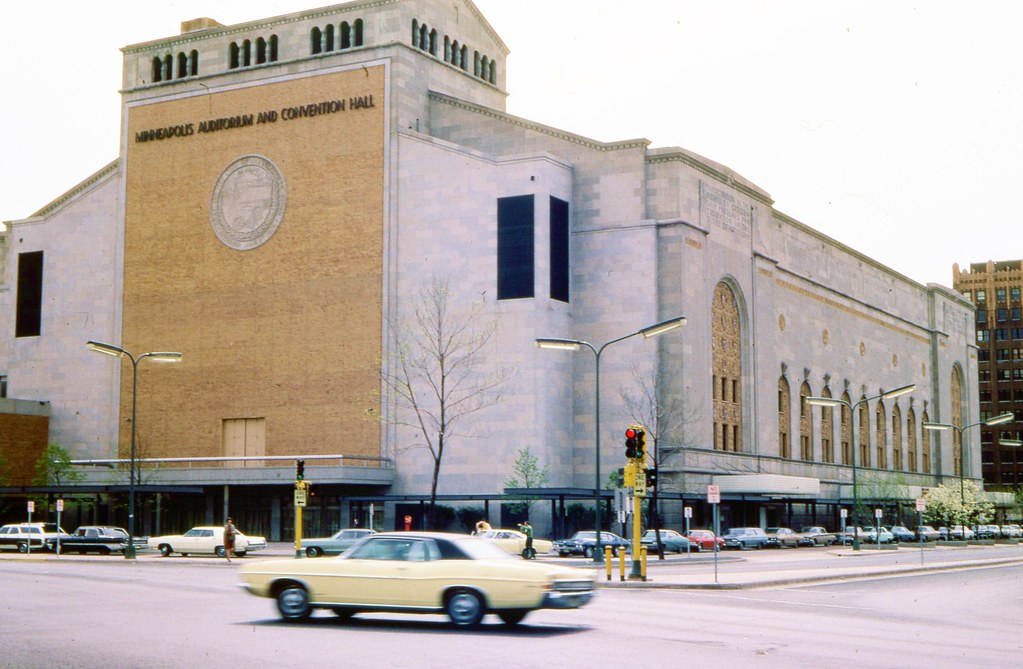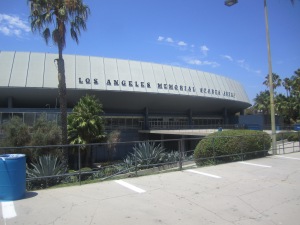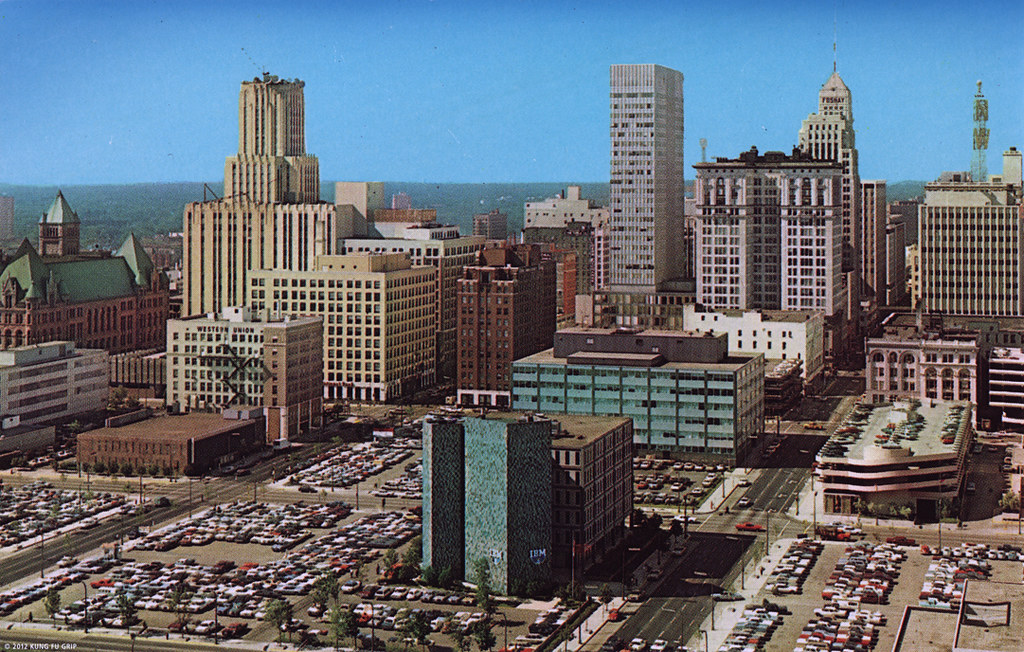The 1953 NBA Champion Minneapolis Lakers.
Left to right: Head coach John Kundla, Slater Martin,
Frank Saul, Jim Holstein, Vern Mikkelsen,
Lew Hitch, George Mikan, Jim Pollard, Bob Harrison,
Whitey Skoog, general manager Max Winter
Tomorrow night, the New York Knicks will travel to Minneapolis to face the Timberwolves, which they have done since 1989.
From 1948 to 1960, they traveled to Minneapolis to play the Lakers. The Lakers won the National Basketball League title in 1948, entered the NBA, and won the title in 1949, 1950, 1952, 1953 and 1954.
They featured future Basketball Hall-of-Famers: George Mikan, Vern Mikkelsen, Jim Pollard, Slater Martin, Clyde Lovellette, and head coach John Kundla -- still alive at age 100. They had another Hall-of-Famer: Pro Football Hall of Fame coach Bud Grant played for them.
The institution of the 24-second shot clock for the 1954-55 season changed everything, making the NBA a faster, higher-scoring game. By the end of the 1955-56 season, Mikan, despite being only 32 years old, saw the writing on the wall, and retired. His era, the Lakers' era of dominance, was over.
By 1959, the team had completely turned over, and reached the NBA Finals with rookie sensation Elgin Baylor, but lost the Finals to the Boston Celtics. And then, after the 1959-60 season, team owner Bob Short moved them across the country to Los Angeles.
How could Short move a team that had been to 7 league finals, winning 6 of them, in just 12 seasons? Especially since he was a Minneapolis native, and having Baylor, and being able to draft Jerry West, meant that they had 2 great drawing cards to fill the arena? It didn't make any sense. Talk about "Short-sighted."
In 1965, Short sold the Los Angeles Lakers to Jack Kent Cooke, who had owned minor-league baseball's Toronto Maple Leafs, was already a part-owner of the NFL's Washington Redskins, and would soon found the NHL's Los Angeles Kings. In 1968, he bought MLB's Washington Senators, and after the 1971 season, moved them as well, to the Dallas area, where they became the Texas Rangers. So he not only moved 2 different major league sports teams, he did it in 2 different sports, involving 4 different metropolitan areas.
But how could Short move what is still the most successful team in the history of Minnesota sports? Think about it: The Lakers won 5 World Championships; every other Minnesota team combined, 2 (both by the Twins).
Top 5 Reasons You Can't Blame Bob Short for Moving the Minneapolis Lakers to Los Angeles
5. The Arena Situation. The Minneapolis Auditorium opened in 1927, and seated 10,000 people, but it was not designed with sports in mind. Nor was the Minneapolis Armory, which opened in 1936 and was the Lakers' home in their final Minneapolis season, 1959-60. The Auditorium was demolished in 1989, while the Armory still stands.
The Minneapolis Auditorium
In contrast, the Los Angeles Memorial Sports Arena opened in 1959, seated over 16,000 for basketball, and had no tenant. The Dodgers had recently arrived to an overwhelming response, the Rams were successful, and both USC and UCLA attracted good basketball crowds. Short realized that the NBA could work there.
When Cooke bought the team from Short, he built an even better arena, the Forum in suburban Inglewood.
4. Coast to Coast. The NBA needed a team in California to be recognized as a truly major league, just as MLB had become in 1958, and the NFL had in 1946. Just 2 years later, the Philadelphia Warriors moved to San Francisco.
By the time the 1970-71 season dawned, they were joined on the Coast by the San Diego Rockets (who didn't last long), the Seattle SuperSonics and the Portland Trail Blazers. And that's without counting the ABA.
3. Los Angeles: City of the Future. The Lakers fit right in: With Elgin Baylor and Jerry West in the 1960s, West and Wilt Chamberlain in the early 1970s, Kareem Abdul-Jabbar and Magic Johnson leading "Showtime" in the 1980s, Shaquille O'Neal and Kobe Bryant in the early 2000s, and Kobe and Pau Gasol the last few years, their flashy image has been a perfect match for L.A.
Downtown Los Angeles, 1958, right after the Dodgers moved in,
and not long before the Lakers did.
2. Minnesota Didn't Miss Them. Once George Mikan retired, the Lakers' attendance was terrible. In 1961, right after the move, the Twins and Vikings arrived. By 1962, the Twins were contenders; by 1967, so were the Vikings. Also, at the time, the University of Minnesota's football team was a championship contender. So the Twin Cities weren't starved for sports entertainment.
Downtown Minneapolis, 1965
True, the Twins lost the 1965 World Series -- to the Dodgers, no less. But they were still having more fun watching the Twins and the Vikings throughout the 1960s than they had watching the Lakers in the late 1950s.
1. It Worked. The Lakers are Southern California's most successful team, making 25 trips to the NBA Finals in their 1st 56 seasons, winning 11 of them. Although it took them until 1972 to win their 1st title, they were popular immediately. With their 1980s success, they became the region's most popular team, surpassing the Dodgers.
In contrast, when the NBA finally expanded in 1989 to include the Minnesota Timberwolves, the response was underwhelming. The T-Wolves have never been a success on the court -- they've only reached the Western Conference Finals once in their 26 seasons to date -- and they're not making the turnstiles spin, either.
The Twin Cities might not be big enough of a region to support teams in each of the Big Four sports, plus Major League Soccer. And, with the Twins and Vikings both having new stadiums, MLS' Minnesota United set to get one (while they start their history at UM's TCF Bank Stadium), and the State of Minnesota being hockey-crazy, and the NHL not wanting to piss them off a 2nd time, if any team has to go, it's going to be the T-Wolves.
In spite of the Laker titles of the Truman and early Eisenhower years, Minneapolis is simply not a basketball city, and Minnesota is not a basketball State. In contrast, Los Angeles loves its hoops.
VERDICT: Not Guilty. Whatever flaws -- or, rather, shortcomings -- Bob Short may have had, it's hard to argue that keeping the Lakers in Minneapolis would have been a better idea than moving them to Los Angeles.







No comments:
Post a Comment